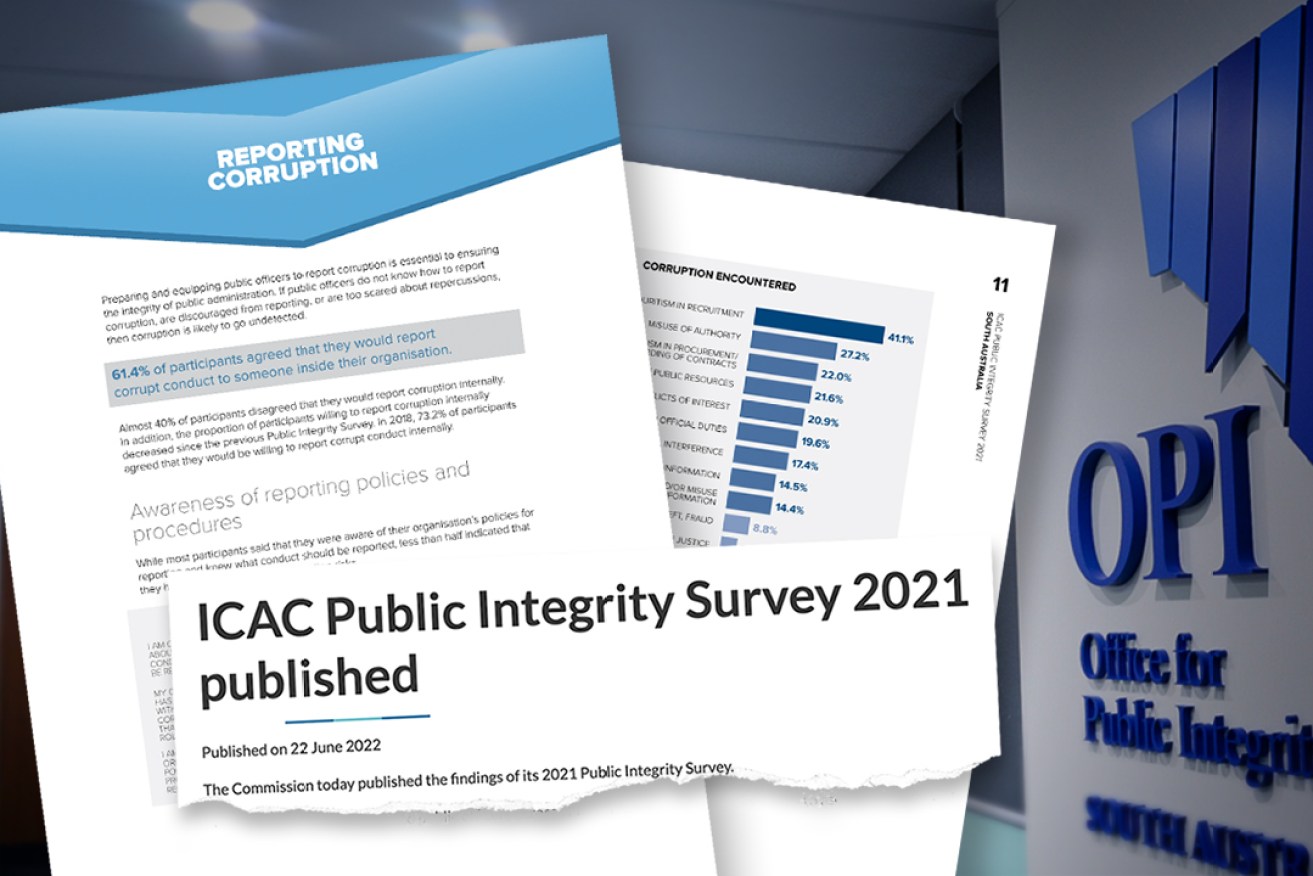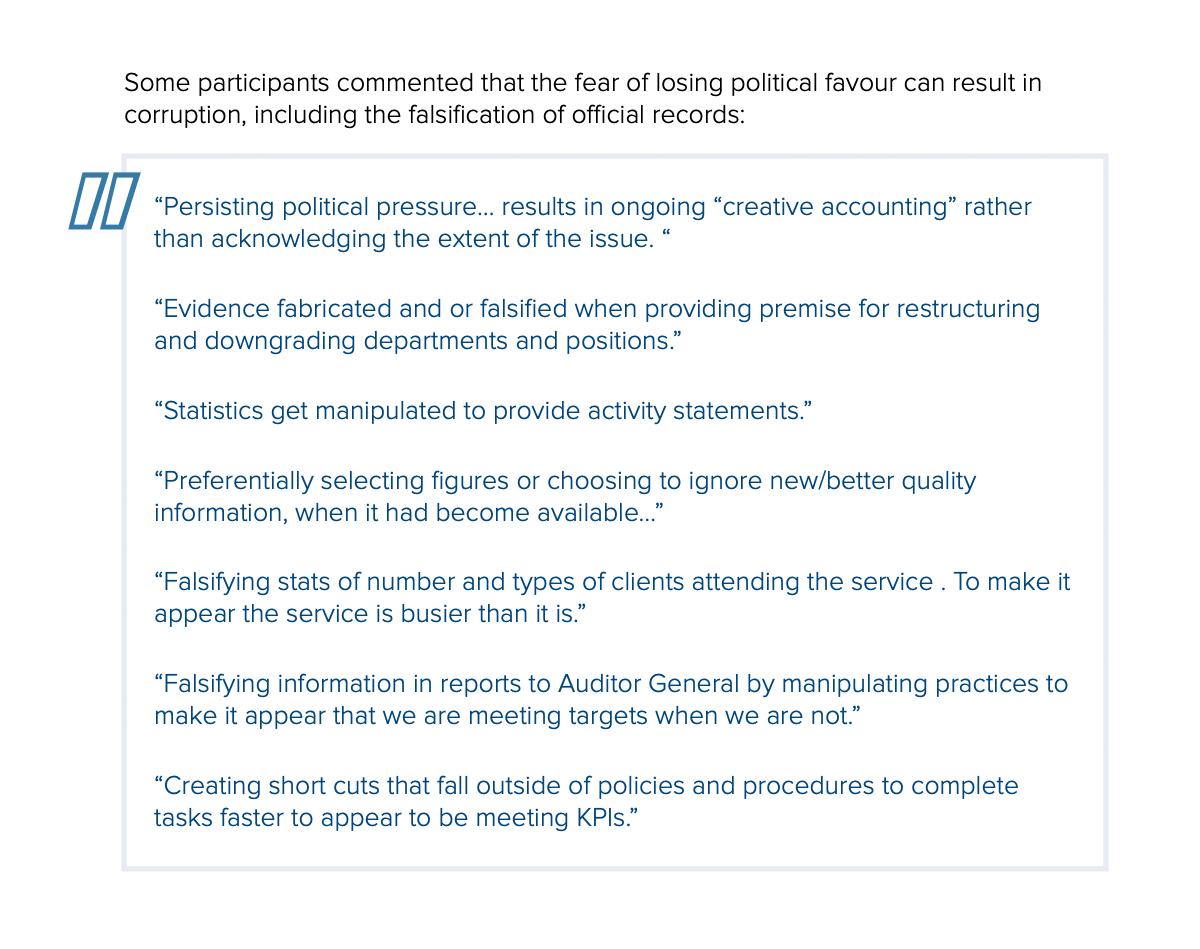SA public servants’ corruption fears
Nearly 60 per cent of South Australia’s public servants believe their workplace is “highly or extremely vulnerable” to corruption, citing nepotism and “political interference” as key concerns in an Independent Commission Against Corruption survey.


Photo: Tony Lewis/Image: Tom Aldahn/InDaily
ICAC this morning released its Public Integrity Survey 2021, saying 7196 public servants responded to the online survey, representing 5.4 per cent of state government staff and 10 per cent of local government staff.
Staff from more than 20 departments and agencies took part, including SA Health, the Education, Environment and Attorney-General’s departments, Correctional Services, TAFE and SA Police.
Participants were asked whether their agency was vulnerable to certain types of corruption. The highest potential category for corruption identified by participants was nepotism in recruitment, at 40.9 per cent, followed by political interference at 33 per cent.
Misuse of authority ranked third at 30 per cent, while 26 per cent believed not declaring or managing conflicts of interest was a workplace issue and 24 per cent cited misuse of confidential information.
The report also found that every category of perceived corruption risk had increased in response since the last survey in 2018, noting that “political interference” came in second at 33 per cent in 2021 despite the category not being included four years ago.
Respondents made a number of claims about catering to political demands in various ways including falsifying records.
“Decisions having been made for political expediency, rather than in the organisational interest, or the benefit of the general public for whom we are supposed to exist,” wrote one respondent.
“There is currently a very strong political influence in what work is undertaken and prioritised even if it is not the most scientifically robust option,” said another, while one respondent reported “Significant political pressure, where Government staff advice is ignored.”

Source: ICAC Public Integrity Survey 2021
More than 22 per cent of the latest survey respondents “indicated that they had personally encountered corruption in their current workplace within the last three years”.
“The results reflect participants’ perceptions rather than actual experiences of corruption,” the report said.
“Nevertheless, beliefs are important as they shape behaviour. The perception that a workplace is vulnerable to corruption can undermine job satisfaction and reduce workplace performance. The belief that workplace corruption is overlooked or tolerated can also increase the likelihood of corruption occurring.”
While survey results did not necessarily mean that corruption had increased, it “might indicate that awareness of corruption has increased”, the report said.
“In addition, while participants might perceive their workplace to be vulnerable to corruption, it does not necessarily mean that corruption is occurring,” it said.
“It is possible that in areas in which there is a high level of perceived vulnerability to corruption, there might also be strong controls against corruption occurring.”
The report also found a significant drop in the number of public service participants who said that they would report corrupt conduct to someone in their organisation.
While 73.2 per cent reported they would do so in 2018, the 2021 figure was only 61.4 per cent.
“Preparing and equipping public officers to report corruption is essential to ensuring the integrity of public administration,” the report said.
“If public officers do not know how to report corruption, are discouraged from reporting, or are too scared about repercussions, then corruption is likely to go undetected.”
Independent Commissioner Against Corruption Ann Vanstone said senior public service leaders “need to pay attention when staff flag potential corruption, and to appreciate how difficult reporting might be for some officers”.
“If public officers believe that reporting is too hard, risky or futile, then corruption will remain undetected and unaddressed. Support for whistleblowers is vitally important.”
Vanstone said the survey was held late last year after parliament unanimously passed legislation to ICAC’s powers and jurisdiction.
“Participants were not asked for their views of the amendments,” Vanstone wrote.
“Yet many public officers provided unsolicited comments expressing an apprehension that the changes had eroded the Commission’s independence,” she said.




